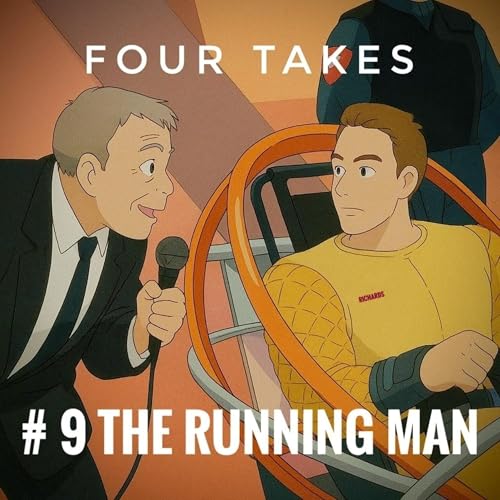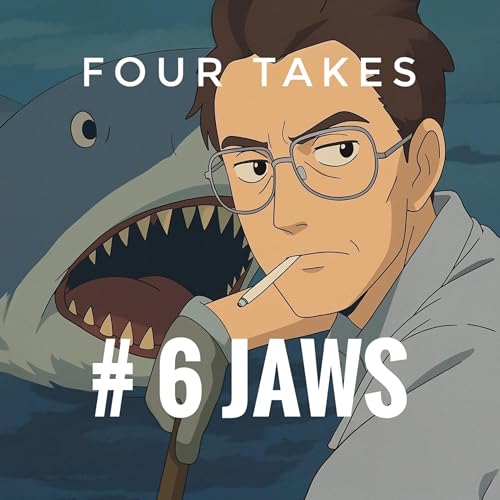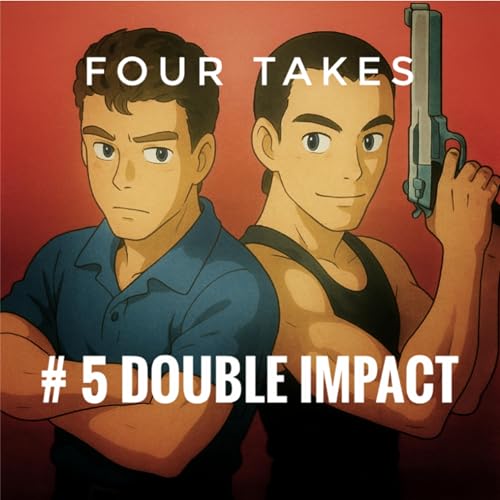Join the Four Takes movie podcast team this week as they delve into the cinematic perfection that is the 1987 classic, The Princess Bride!
Before riding into the magical land of Florin, our intrepid film enthusiasts catch up on their week in film and TV. Martin revisits the solid actioner Nobody and its sequel, where Bob Odenkirk nearly met his maker, pondering the universal desire to exact justice on annoying bus passengers, all without having to wear hockey pads (or pants!).
The team discuss enjoying Apple TV's notoriously high-quality offerings like the sprawling sci-fi The Foundation, co-starring Jared Harris, an Isaac Asimov adaptation where each episode cost a mere £4 million, dwarfing other fantasy shows. The workplace comedy Mythic Quest, and beloved hits like Ted Lasso, Shrinking (featuring Harrison Ford!), and Silo are also discussed. David and Adam also extol the virtues of Halt and Catch Fire, calling it one of the best TV shows they've ever seen, which chronicles the tumultuous birth of the IT industry in the late '70s and early '80s, full of ambition and people screwing each other over to become rich and powerful.
Finally, it is time for a deep dive into The Princess Bride, a film so utterly perfect it has been enshrined in the BFI archive as a significant film. Discover how this cinematic gem, based on William Goldman's novel, is essentially a grandfather (played by the iconic Peter Falk, or as they call him, Columbo!) reading a story to his sick grandson (Fred Savage, in his debut role). The discussion uncovers the somewhat problematic, but humorous, origins of Buttercup and Wesley's relationship, where the famous phrase "as you wish" secretly meant, "I love you".
The team revels in the glorious absurdity of character names like Prince Humperdinck, and the villainous trio of Vizzini, Fezzik (the real-life giant Andre the Giant, no less!), and everyone's favourite, Inigo Montoya. Vizzini is quickly branded the worst boss ever with a nasally voice that sounds suspiciously like the insurance boss from The Incredibles, constantly threatening jobs and berating his gang. Relive the legendary sword fight between Wesley and Inigo, regarded as the greatest sword fight in all of cinema history, so meticulously rehearsed y the actors that it caused problems!
Who could forget the iconic Battle of Wits involving iocaine powder, all while Buttercup just sits there chilling her beans waiting for someone to die! The team also celebrates the incredibly satisfying payoff of Inigo Montoya's revenge against the six-fingered man, fuelled by Mandy Patinkin's real-life grief over his father, leading to one cinema's most unforgettable moments. Ultimately, the pervasive theme of love binds everyone, even finding a peculiar friendship between Humperdinck and the six-fingered man in the pit of despair.
The Team look forward to their next cinematic adventure which will take them out of this world, via an IMAX screen (just don't ask about sharing popcorn!). Tune in for a perfect episode about a perfect movie!
 2025/10/271 時間 8 分
2025/10/271 時間 8 分 2025/09/1859 分
2025/09/1859 分 2025/08/2538 分
2025/08/2538 分 2025/07/2448 分
2025/07/2448 分 2025/07/1635 分
2025/07/1635 分 2025/05/2743 分
2025/05/2743 分 2025/04/1945 分
2025/04/1945 分 2025/03/2938 分
2025/03/2938 分
